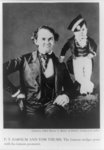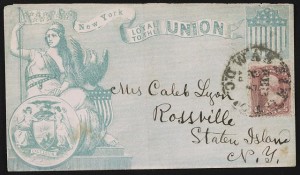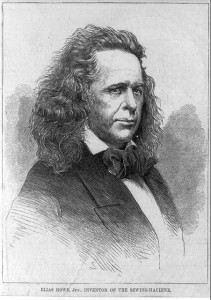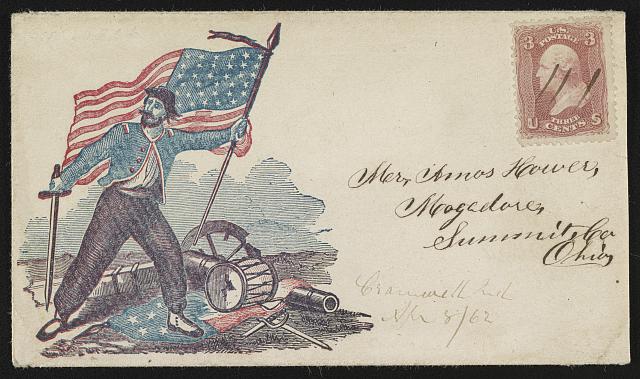From the Richmond Daily Dispatch June 3, 1863:
Barnum Redivivus.
For nearly two years past we had been wondering at the total eclipse of that great Yankee luminary and representative man, Phine[a]s T. Barnum. That this celebrated man should be absent from the roll of Yankee Major-Generals we could easily understand, the effect of Confederate bullets on the Yankee constitution being thoroughly appreciated by that worthy; but that such a chip of the old Plymouth block should remain at home in inglorious case, whilst the Butlers and the Yankees were achieving elsewhere unfading laurels and cramming their pockets with untold plunder, was something wholly unaccountable. We are indebted to the New York Tribune for a solution of this strange phenomenon. Barnum still lives — his inventive genius yet shines with undiminished lustre; but from an exhibitor of woolly horses and mermaids he has now become the great engineer of the Northern Loyal Leagues and the patent manufacturer of Yankee enthusiasm. In his editorial account of the meeting of the Loyal League at Utica, Greeley thus unconsciously lets the cat out of the bag:
“More than one thousand of those in attendance were soldiers, honorably discharged from service on the expiration of their respective terms of enlistment, and now rallying under the flag for which they had braved privation, peri[l], and death, to proclaim their invincible resolve that the Union must be preserved. Of these soldiers, about half went up from this city, on invitation, the expense of their transportation being defrayed by a subscription here, while at Utica the noblest women ministered to their wants with a bounteousness and sapidity which left nothing to desire. Their breakfast, dinner, and supper were good enough for an Emperor; and had they been twice as numerous all would have had enough and to spare. We are sure our soldiers will long cherish a lively and grateful remembrance of the hospitalities of the loyal women of Utica, and that they returned to our city more eager, if possible, than before to serve and save their country. And as the burden of defraying the cost of their trip was generously assumed by Mr. Leonard W. Jerome, we trust others will gladly contribute to divide and lighten it.”
The devoted patriotism which impelled the aforesaid discharged soldiers “to rally again under the flag,” to ride, free of expense, to Utica and back; the reckless daring with which they stormed and carried the successive meals, “fit for an Emperor,” set before them by the “noblest women of Utica,” and the “glorious” feelings with which they sallied forth, forgetful of the disabilities which had procured their discharge from the Yankee service, ready “to serve and save their country,” present to the mind a succession of grand and overpowering images, forming all together a picture of unsupportable moral sublimity. Pity that the effect of the whole should be somewhat marred by the concluding paragraph, in which Leonard W. Jerome, (Barnum, of course,) delicately calls upon an admiring public “to divide and lighten the cost,” there by practically ignoring the fact stated by Greeley just above, that the “expense of their transportation had been defrayed by a subscription here.” The slight discrepancy between these two apostles of freedom, however, being reducible to a mere question of dollars and cents, which may have gone to swell the famous Slievegammon fund of the Tribune philosopher, to the permanent injury of P. T’s pocket, it is not our purpose to endeavor to clear up; but the bold and original expediency of having a lot of discharged soldiers always on hand, ready for shipment, whenever and wherever wanted — this happy conjunction of free dinners and free speech, of beefsteaks and buncombe, is a conception worthy of the genius of the great Connecticut showman, and should secure for him the first vacant seat in Abraham’s Cabinet.
I don’t know why the Dispatch assumes Leonard W. Jerome is Barnum, but it sort of makes sense that he wouldn’t mind if others helped pick up the tab for the veterans’ travel expenses. And P.T. Barnum was pro-Union. According to The Life of Phineas T. Barnum by Joel Benton at Project Gutenberg (Chapter XXXVI), Mr. Barnum had been a life-long Democrat, but “in 1860 his political convictions were changed, and he identified himself with the Republican party.” He was involved in Wide-Awake meetings during the 1860 presidential campaign. After Fort Sumter, ” Barnum was too old for active service in the field, but he sent four substitutes and contributed largely from his means to the support of the Union.”
After First Bull Run, Barnum investigated a peace meeting. The incident presaged, in a way, the use of troops at political meetings:
After Bull Run, July 21st, 1861, “Peace Meetings” began to be held in different parts of the North, and especially in Connecticut. At these meetings it was usual to display a white flag bearing the word “Peace,” above the national flag, and to listen to speeches denunciatory of the war.
One of these meetings was held August 24, 1861, at Stepney, ten miles north of Bridgeport, and Mr. Barnum and Elias Howe, Jr., inventor of the sewing machine needle, agreed to attend and hear for themselves whether the speeches were loyal or not. They communicated their intention to a number of their friends, asking them to go also, and at least twenty accepted the invitation. It was their plan to listen quietly to the harangues, and if they found any opposition to the government or anything calculated to create disaffection in the community, or liable to deter enlistments,—to report the matter to the authorities at Washington and ask that measures be taken to suppress the gatherings.
As the carriages of these gentlemen turned into Main street they discovered two large omnibuses filled with soldiers who were home on a furlough, and who were going to Stepney. The lighter carriages soon outran the omnibuses, and the party arrived at Stepney in time to see the white flag run up above the stars and stripes. They stood quietly in the crowd, while the meeting was organized, and a preacher—Mr. Charles Smith—was invited to open the proceedings with prayer. “The Military and Civil History of Connecticut, during the war of 1861-65,” by W. A. Croffut and John M. Morris, thus continues the account of the meeting:
“He (Smith) had not, however, progressed far in his supplication, when he slightly opened his eyes, and beheld, to his horror, the Bridgeport omnibuses coming over the hill, garnished with Union banners, and vocal with loyal cheers. This was the signal for a panic; Bull Run, on a small scale was re-enacted. The devout Smith, and the undelivered orators, it is alleged, took refuge in a field of corn. The procession drove straight to the pole unresisted, the hostile crowd parting to let them pass; and a tall man—John Platt—amid some mutterings, climbed the pole, reached the halliards, and the mongrel banners were on the ground. Some of the peace-men, rallying, drew weapons on ‘the invaders,’ and a musket and a revolver were taken from them by soldiers at the very instant of firing. Another of the defenders fired a revolver, and was chased into the fields. Still others, waxing belligerent, were disarmed, and a number of loaded muskets found stored in an adjacent shed were seized. The stars and stripes were hoisted upon the pole, and wildly cheered. P. T. Barnum was then taken on the shoulders of the boys in blue, and put on the platform, where he made a speech full of patriotism, spiced with the humor of the occasion. Captain James E. Dunham also said a few words to the point. * * * * ‘The Star Spangled Banner’ was then sung in chorus, and a series of resolutions passed, declaring that ‘loyal men are the rightful custodians of the peace of Connecticut.’ Elias Howe, Jr., chairman, made his speech, when the crowd threatened to shoot the speakers. ‘If they fire a gun, boys, burn the whole town, and I’ll pay for it!’ After giving the citizens wholesome advice concerning the substituted flag, and their duty to the government, the procession returned to Bridgeport with the white flag trailing in the mud behind an omnibus. * * * * They were received at Bridgeport by approving crowds, and were greeted with continuous cheers as they passed along.”
As a state legislator in 1865 Barnum spoke in favor of a Connecticut state constitutional amendment granting suffrage to negroes:
… I agree with the gentleman that the right of suffrage is “dearly and sacredly cherished by the white man”; and it is because this right is so dear and sacred, that I wish to see it extended to every educated moral man within our State, without regard to color. He tells us that one race is a vessel to honor, and another to dishonor; and that he has seen on ancient Egyptian monuments the negro represented as “a hewer of wood and a drawer of water.” This is doubtless true, and the gentleman seems determined always to KEEP the negro a “vessel of dishonor,” and a “hewer of wood.” We, on the other hand, propose to give him the opportunity of expanding his faculties and elevating himself to true manhood. …
You can read a modern quick bio of Mr. Barnum at The Barnum Museum.
The Loyal Union League meeting in Utica, New York was apparently also controversial in the North based on this rejoinder by a basically pro-Republican newspaper.
From The New-York Times June 1, 1863:
THE UTICA CONVENTION
It is very amusing to observe the vigorous and united attempts of the journals in the Copperhead interest to disparage the Loyal State Convention at Utica The Albany Argus and Atlas teems with paragraphs of all shapes and sizes seeking to prove that it was a failure, that nobody was there, that it was an overwhelming McClellan demonstration, &c, &c. If it was so small an affair, why make so much fuss about it? And if it was a McClellan meeting, why abuse it? This excessive anxiety to belittle it, proves that somebody is hurt.

![The Barnum & Bailey Greatest Show on Earth. [Portraits of P.T. Barnum [and] J.A. Bailey ( New York, Cincinnati : Strobridge & Co., Lith., 1897; LOC: LC-USZC4-921)](https://www.bluegrayreview.com/wp-content/uploads/2013/06/3b52428r-215x300.jpg)



